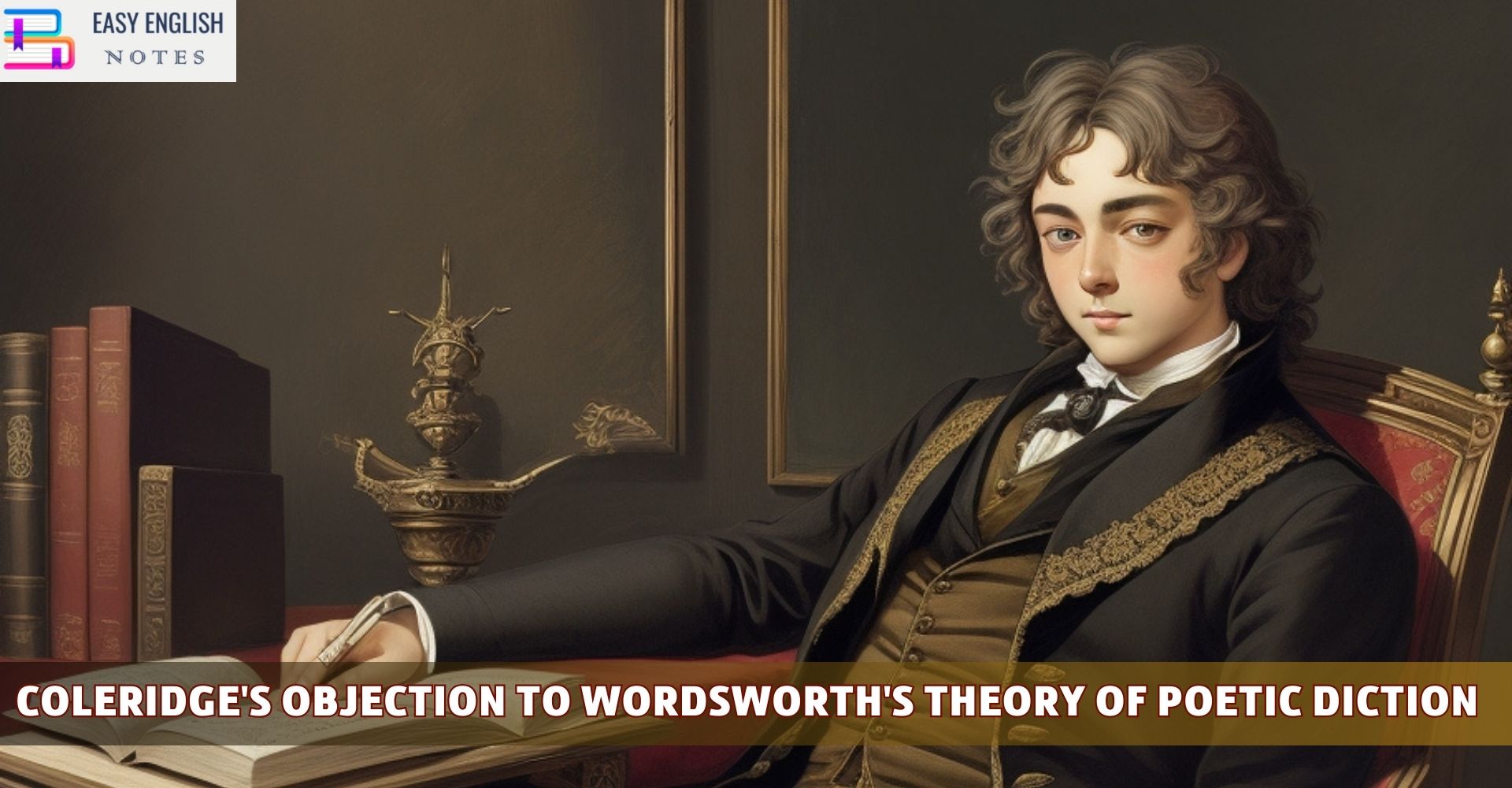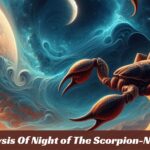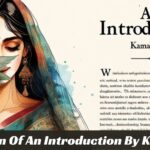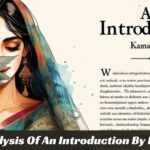Samuel Taylor Coleridge’s intellectual relationship with William Wordsworth was as collaborative as it was complex, particularly when it came to poetry. Wordsworth’s theory of poetic diction, which advocated the use of ordinary language in poetry, aimed to make it more accessible by using the language really used by men. Coleridge, however, had reservations about this approach.
S.T. Coleridge belongs to the 19th century English poetry. He is a first rate romantic poet. He is one of the mightiest geniuses in the history of English literature. Moreover, he is one of the greatest critics of English literature. It is his immense capability that attracts us very easily. According to Arthur Symonds, his “Biographia Literaria is the greatest book of English criticism.” Saintsbury ranks him with Aristotle and Longinus. Herbert sees him anticipating existentialism and Preud. He was undoubtedly, very much influenced by German philosophers like Kant, Schelling and Schelegel. But this does not tell anything about his originality which particularly comes out of his examination of Wordsworth’s theory of poetic diction.
The Augustan poets had a firm faith in elegance, decorum and good sense the qualities they missed in ordinary life and speech. That is why. they thought that the language of poetry should be different from every day speech. Poetic diction consisted in the use of polished phrases. periphrases, personification etc. Poetic diction, according to Grey, Collins and Pope, was an effective means of poetic composition.
In his preface to the Lyrical Ballads. Wordsworth makes a fierce attack on the 18th century poetic diction which he calls false and artificial. Here he gives two important points-
- There neither is nor can be essential difference between the language of prose and metrical composition. So, metre is not necessary to poetry.
- There is no vital difference between the language of poetry and the impassioned and purified language of common speech. For rustic language is the natural language of the passions.
Coleridge examines Wordsworth’s theory of poetic diction in chapter 16, 17, 18, 19, 20 of Biographia Literaria, He, first of all, refutes Wordsworth’s contention that there is no essential difference between the language of prose and poetry. Coleridge admits that there is a natural style common to prose and poetry. But poetic language is more nearly universal. more impassioned, more imaginative than other forms of utterance. Coleridge decorously refers to Wordsworth’s own diction which he finds to be next to that of Shakespeare and Milton “the best individualized and characteristic.” This is to say, in many of his best poems Wordsworth uses a diction that is charged and dignified rather than the common speech of rustics. Again, though words may be common, their arrangement in prose and verse is different. The plain question is whether all the words and figures used in prose and verse are interchangeable. Coleridge answers in negative.
Also Read :
- Compare Hamlet with Macbeth, Othello and other Tragedies
- “The Pardoner’s Tale” is the finest tale of Chaucer
- Prologue to Canterbury Tales – (Short Ques & Ans)
- Confessional Poetry – Definition & meaning
- Line By Line Explanation Of The Poem The Eve of St. Agnes
Coleridge also defends the use of metre in poetry. Metre is an art which disciplines poetic activity. The use of metre in poetry requires an arrangement of words different from what would be natural in prose. Coleridge says, “I write in metre, because I am about to use a language different from that of prose.”
Coleridge does not agree to Wordsworth’s high praise of the rustic language. The language of the rustics also varies from person to person. The language of both a rustic and a townsman differs from person to person, class to class, place to place. Naturally, Coleridge asks which of these forms of speech is the real language of man. The rustic language purged of its crudities would be practically the same as that of any other class of people.
Coleridge objects to the statement that the rustics language is formed by communication with elemental nature. Firstly, the limited knowledge of the rustic would furnish too scanty a vocabulary to express the general influence of nature. Secondly, Coleridge denies that the words and their combinations derived from the objects with which the rustic is familiar. can be said to form the best part of language. The best part of human language is derived from reflections on the acts of the mind itself, and the best elements in rural language have been filtered down to it from the universities and the church. In fact, plain rustic language is so far deficient that missionaries find it difficult to convey moral and spiritual ideas entirely in this vocabulary.
Coleridge’s objection centered around his belief that the language of poetry should be a selection of the language of real life. He believed that by choosing the right words, a poet could elevate the language to convey profound truths and deep emotions that transcended ordinary experience. According to Coleridge, Wordsworth’s emphasis on simplicity risked diluting the poetic strength and reducing the mystical quality that sets poetic expression apart from everyday conversation.
For Coleridge, poetry was an embodiment of the imagination, and as such, it demanded a richer, more crafted form of language to capture the numinous and the sublime. His critique of Wordsworth’s theory is a fascinating exploration of the nature of poetry itself and the linguistic alchemy that turns the mundane into the extraordinary.
PLEASE HELP ME TO REACH 1000 SUBSCRIBER ON MY COOKING YT CHANNEL (CLICK HERE)











